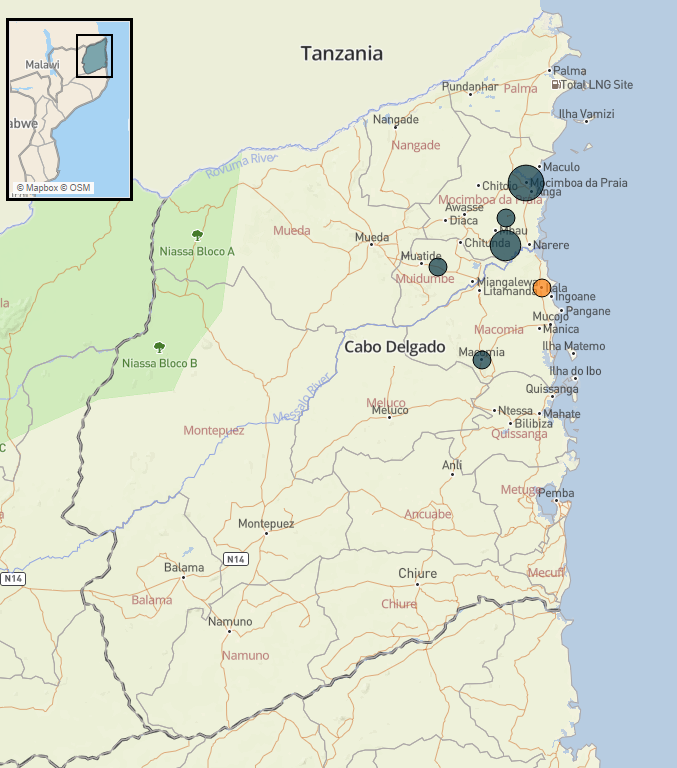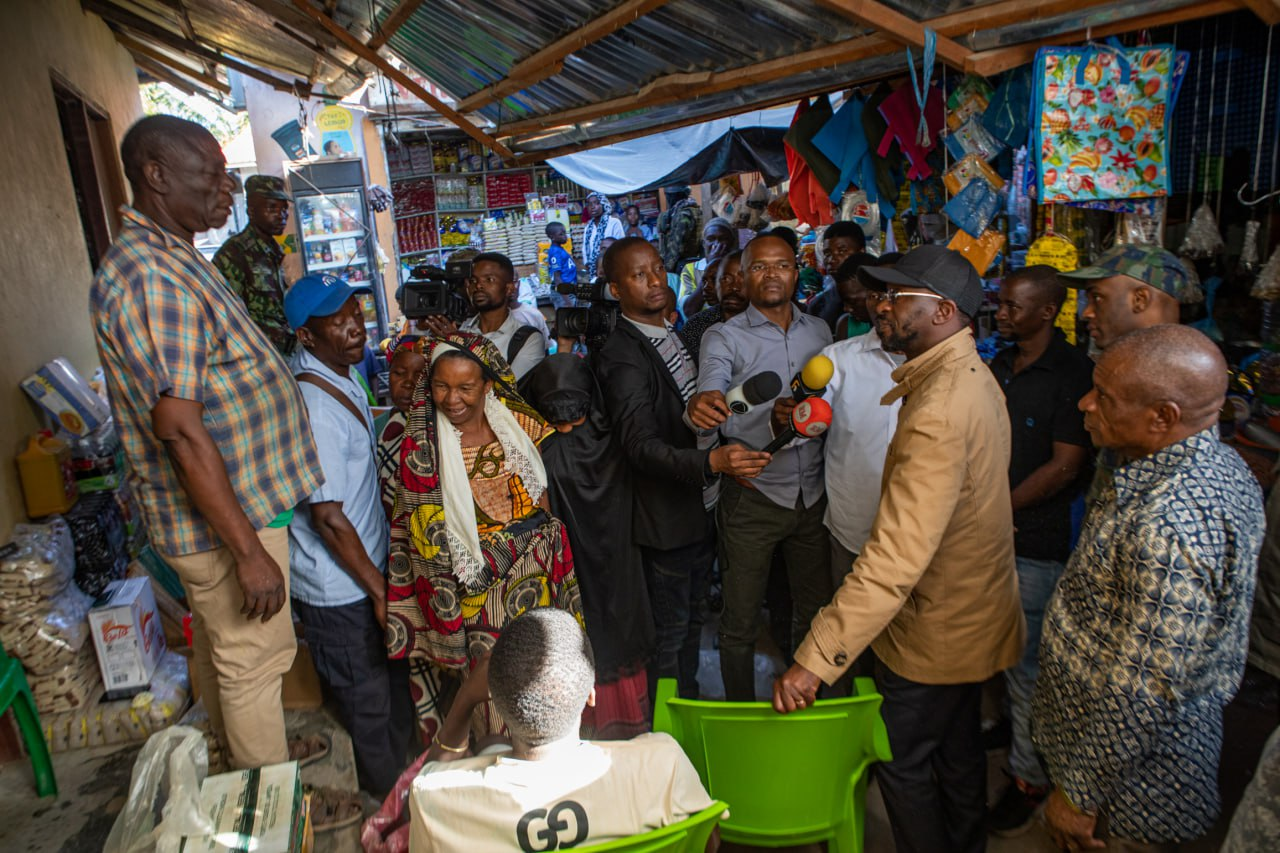In the last week of June 2023, Mozambique's Ministry of National Defense extended an unusual invitation to a group of national and international journalists for a day trip to two conflict-affected districts in Cabo Delgado – Palma and Mocímboa da Praia. It was during the government's counter-offensive in 2021 to retake the town of Palma, which fell to the insurgents on 24 March, that a significant group of journalists was last taken to the northern theater of operations. But two years later, the government that had so severely restricted media coverage of the conflict in Cabo Delgado is reopening the province's doors to the press. What is the significance of this move on the part of the government? And what can be said about the current media reporting on the conflict in northern Mozambique?
This piece is from the Cabo Ligado Monthly: May 2023

"Is there still war in Cabo Delgado?" is a common question in Maputo and other provincial capitals when President Filipe Nyusi announces the killing, capture, or surrender, of insurgents in clashes with the FDS. This is because the conflict in Cabo Delgado continues to be under-reported in the national press. The government’s reluctance to provide information on the conflict has been questioned by the Mozambican academic Elísio Macamo. He asks why the government, and the Ministry of National Defense in particular, do not hold regular press conferences to inform and explain to Mozambicans what is happening in the province. Making such information available, says Macamo, would allow a wider debate to take place.
Another issue hampering the work of journalists in Cabo Delgado is the lack of protection and security for journalists in conflict-affected areas. Their personal and individual security is almost non-existent, apart from the fact that they are not welcomed by the authorities. This includes a lack of protection from abuse by the FDS, as well as the insurgents.
Moreover, President Nyusi's statements in 2021, when he accused the media of effectively acting on behalf of “enemies or terrorists,” still have an impact on the journalism profession. The idea that journalists should align themselves with the government's narrative is echoed in the notion that journalists should not broadcast news that goes against national unity. In this respect, there is a degree of difference between the official press and the private press. While the state media, particularly Rádio Moçambique and Televisão de Moçambique, has been at the forefront of the government agenda in its coverage, the private media have not. This has limited the spread of the government's propaganda.
Embarking on a trip with more than 40 journalists, including many from the private media, essentially aimed to fill this gap. The aim was primarily the dissemination of the government's narrative and perspective on the conflict. On a guided visit by the Ministry of National Defense, the journalists first arrived in the village of Palma. They then went to the village of Mute in Palma and on to Mocímboa da Praia district headquarters. The journalists were able to witness the significant return of the displaced population and the revival of the local economy. This is what the government calls stability, which, according to Minister of National Defense Cristóvão Chume, is measured by the number of people living there. Throughout the various stops, Chume interacted with people who were able to confirm the return to normality, at least in the more secure areas. The visit ended with a press conference. Chume addressed various issues relating to the conflict, including the agreement between the Government of Mozambique with TotalEnergies on the Joint Task Force.
By also inviting foreign media to Cabo Delgado, the government wanted to reassure foreign investors that security conditions allow the resumption of natural gas projects, which have been suspended since Total declared ‘force majeure’ in 2021. However, the security situation in the two districts is a mixed one. In Palma, there has been no political violence since February. The situation is contrary in Mocímboa da Praia, where in June, insurgents were seen moving freely in the south of the district, particularly in the villages of Kalugo and Limala.
There are doubts about whether the recent opening up of Cabo Delgado to the press will be permanent and consistent. Firstly, the visit was organized by the government itself, not on the initiative of journalists. Secondly, the places through which the journalists were to pass were determined by the government authorities themselves. Another question is the extent to which the government's strategy of conveying a sense of stability in Cabo Delgado has been successful.
Meanwhile, IS appears to have its propaganda machine in full swing. It recently published pictures of dead Mozambican soldiers and various equipment and ammunition seized as a result of the recent clashes in Macomia. If this media counter-offensive by IS does not discredit the government's efforts to project stability, it at least casts doubt on the government's prospects in the face of the conflict.










